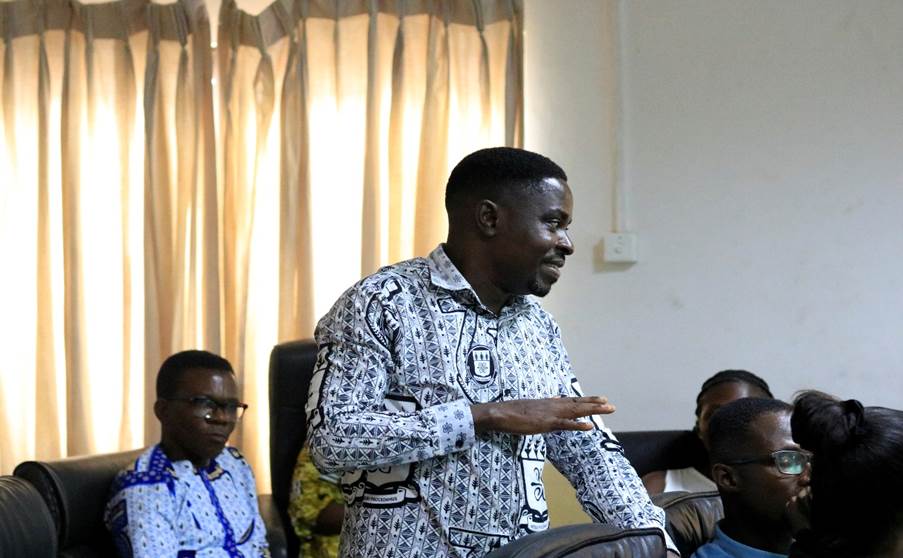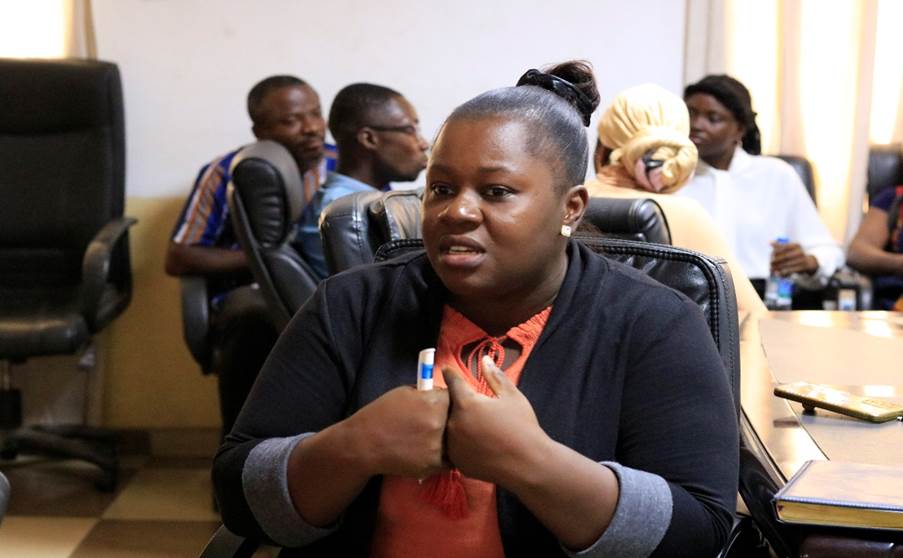Co-Creating the Future: UG Nkabom Engages Students in Agri-food Curriculum Design

The University of Ghana Nutrition and Sustainable Agri-food Collaborative (UG Nkabom) has held a stakeholder engagement forum to solicit the input of youths towards the development of experiential short courses tailored to the needs of young people in agribusiness. This curriculum is aimed at equipping youth-led, agri-related startups and businesses with in-demand skills suitable to current market needs.
The programme, which drew youths from diverse backgrounds engaged in small businesses within Ghana’s food systems space, was to gather insights on their entrepreneurial experiences and knowledge gaps. This is to ensure that short courses developed by the Collaborative are needs-driven and impactful. Participants were guided to draw from their experiences to share their knowledge and skills gaps to inform the development and launch of the courses.

Key areas of interest highlighted by the students included digital tools in agri-business, navigating regulatory and logistical hurdles as well as collaboration and networking.
In a brief opening address, UG Nkabom Lead, Professor Richmond Aryeetey, lauded the bold and decisive step the students had taken to chart an entrepreneurial career path.
“The engine of the world is business and UG Nkabom exists to provide an enabling environment to help you, not only give expression to but nurture the various agri-food related ventures you have started,” he noted.
Professor Aryeetey charged the students to leverage the opportunities provided through networking and community engagement, to enhance their drive toward creating thriving businesses aimed at securing a future for themselves and others, while positioning agriculture and its related careers as preferences of Ghana’s youth.
Dr. Hayford Ayerakwa, who leads the Education Pillar of UG Nkabom, guided the students to identify and outline areas and topics that resonate with their needs as players in the contemporary Ghanaian nutrition and agri-food business space. He disclosed the UG Nkabom Education Pillar’s intention to engage with other youths in agri-food systems on a broad spectrum of sector-specific issues. Policymakers and regulatory stakeholders would also be engaged to expand the knowledge base that informs the courses to be developed.

The perspectives shared by a cross-section of the students pointed to the impact, timeliness and relevance of the session. A participant remarked: “I have come to realise that I don’t stand alone, and that collaboration is critical. Importantly, for me, there are experts here to hold my hand along this journey, and I find that inspiring and encouraging.”

As part of its mandate, UG Nkabom will work through three functional pillars – Education, Access and Success and Entrepreneurship. The Education Pillar, which spearheaded the consultation, is designed to offer experiential learning opportunities that empower the youth through climate-smart, indigenous and nutrition-sensitive agri-food practices. Rooted in community-based research and innovation, the Pillar seeks to transition learning from predominantly theoretical models to hands-on, career-oriented training for Ghanaian youth.